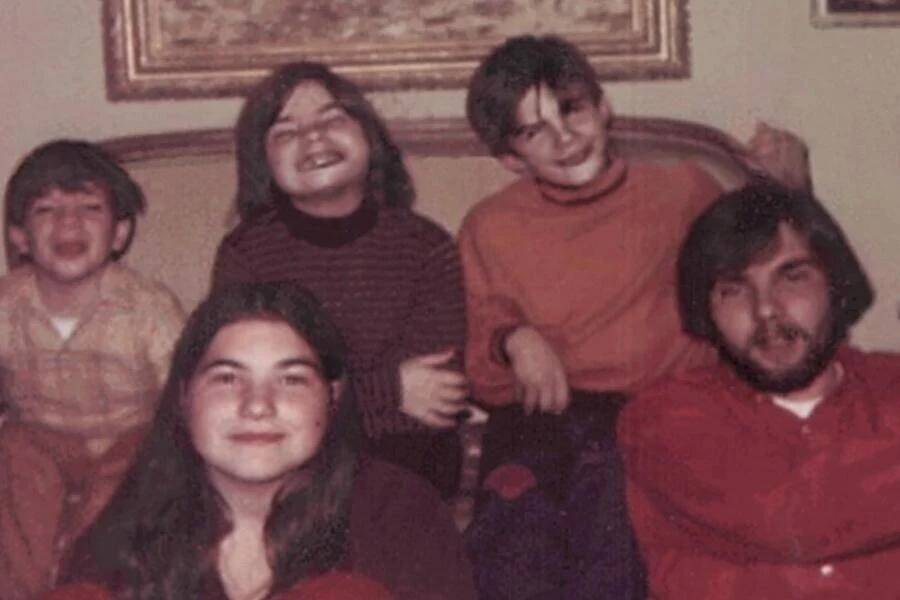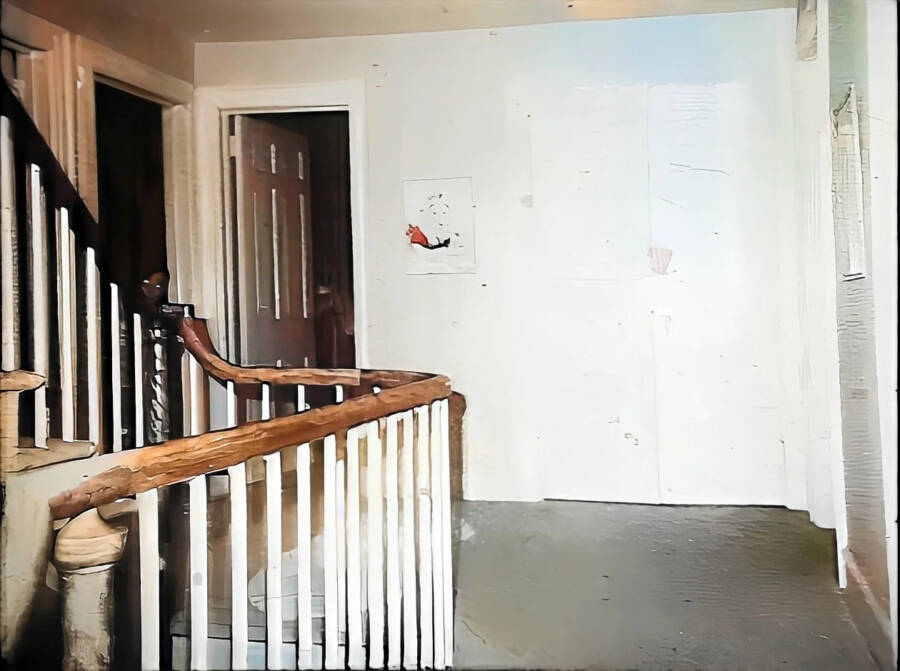The Amityville Horror: Ed And Lorraine Warren’s Most Infamous Case That Arguably Paved The Way For The Conjuring Series

Public DomainThe DeFeo children. Back row: John, Allison, and Marc. Front row: Dawn and Ronald Jr.
The Amityville Horror isn’t part of The Conjuring franchise, and the famous 1979 movie premiered decades before the first Conjuring film ever came out. But the case was mentioned in the first Conjuring movie, and for good reason — it might be the Warrens’ most infamous case they investigated.
The sensational details behind it proved that the cases the Warrens examined were practically made for the silver screen. However, the Amityville haunting is also the one that’s most widely believed to be a hoax.
It all started thanks to a brutal murder on Nov. 13, 1974. Then, the quiet town of Amityville, New York was rocked by a shockingly violent crime.
That night, 23-year-old Ronald DeFeo Jr. took a rifle and murdered his parents and four younger siblings at their home at 112 Ocean Avenue. DeFeo initially claimed the mob had targeted his family, but before long, he confessed to the killings. In 1975, he was convicted of six counts of second-degree murder and sentenced to six consecutive sentences of 25 years to life in prison, despite his lawyer’s attempts to claim that DeFeo was “insane” and turned to murder because of the demonic voices in his head.
Just months after the killings, George Lutz and his wife Kathy purchased the DeFeos’ home and moved in with their three children, eager for a fresh start. They only lasted 28 days in the home before they decided to flee.
Shortly afterward, they publicly claimed that the home was plagued by terrifying paranormal forces. They described doors slamming shut on their own, green slime oozing down walls, and a pig-like creature with glowing red eyes lurking outside the windows. It was the ever-looming presence of something violent and oppressive, they said, that made them flee the home.
The alleged haunting was reported on nationally, and eventually caught the attention of Ed and Lorraine Warren, who were lesser-known figures at the time. When they visited the house, Lorraine claimed to sense the spirits of the murdered DeFeo children and reported powerful visions inside the house. The Warrens asserted that a practitioner of black magic had once conducted rituals on the land and was buried there, and that Shinnecock Native Americans had treated the sick and mentally ill on the property before that — despite no historical evidence to support these claims.
Regardless, the sensational claims and the home’s dark history united to help spread a story of tragedy and haunting, spawning books, television shows, and film retellings of the supposedly paranormal events.

Public DomainA photograph taken by the Warrens in the Amityville house, supposedly showing a “spirit.”
Still, the original story the Lutzes told was shaky at best. George Lutz, who was reportedly struggling financially at the time, stood to benefit from the media frenzy surrounding the case. And crucially, no one else who occupied the home after the Lutzes ever reported a paranormal experience inside it.
Furthermore, George’s stepson, Christopher Quaratino, later alleged that many of the events were exaggerated by George himself. William Weber, the defense attorney for Ronald DeFeo Jr., also came forward with allegations: He and George Lutz had concocted details of Jay Anson’s book The Amityville Horror over drinks, with the aim of selling a scary story.
Notably, similar accusations have been levied at the Warrens throughout the years. Ray Garton, who co-wrote the Warrens’ In a Dark Place in 1992, recalled Ed once telling him, “Everybody who comes to us is crazy. Otherwise why would they come to us? You’ve got some of the story — just use what works and make the rest up. And make it scary.”
This, paired with other disturbing allegations about the Warrens’ abuse of a girl named Judith Penney, casts a dark shadow over their legacy — especially when Warner Bros.-produced films portray them in such a positive light.
The Conjuring series has had its ups and downs, but it’s important to keep in mind that the movies, while partly inspired by true events, are works of fiction. In fact, based on the Warrens’ controversial history and apparent willingness to fabricate at least some of their cases, it might be fair to say their own stories were only “based” on true events and nothing more.
After reading about the true stories that inspired The Conjuring movies, learn about Judy Warren, the only child of Ed and Lorraine Warren. Then, go inside the true story behind The Haunting in Connecticut.





